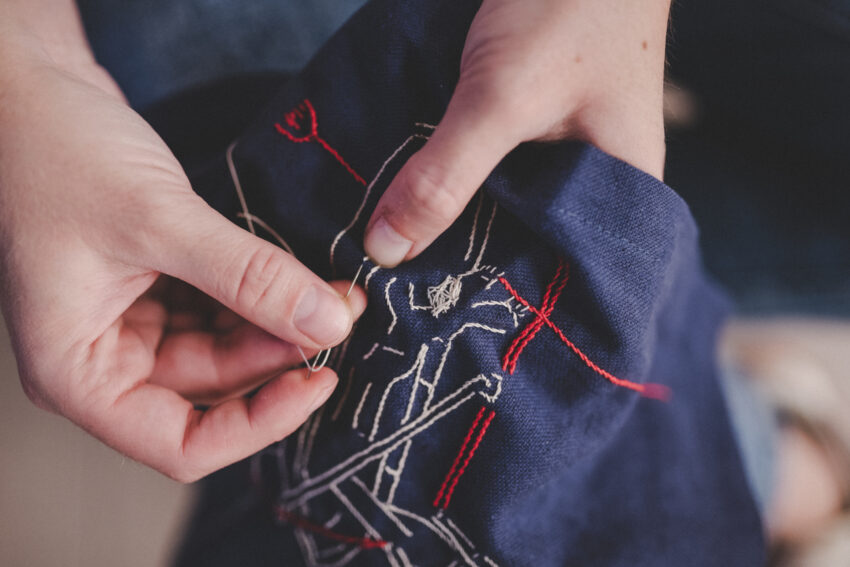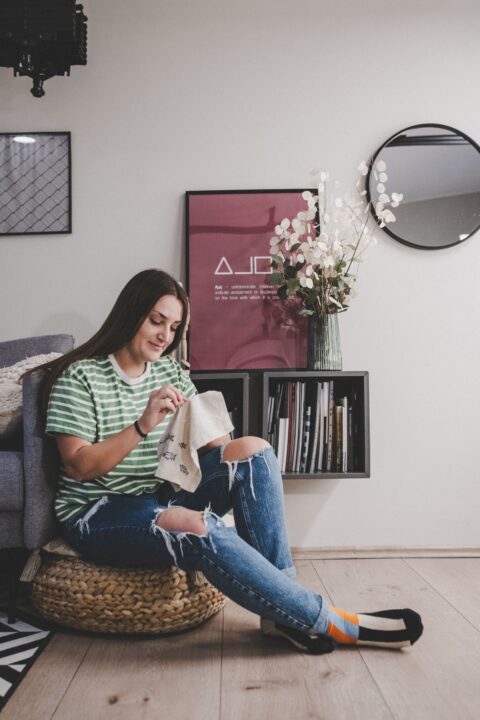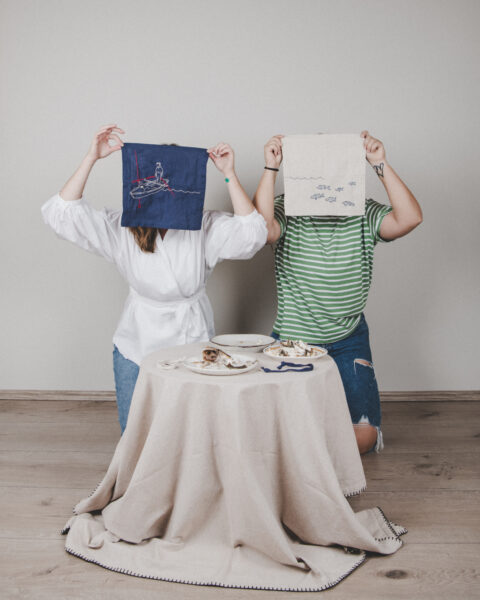Istrian Tradition Embroidered with Minimalist Elegance

© AJOJ
AJOJ interpreting the everyday Istrian culture by designing and embroidering for those who appreciate detail, minimalism, simplicity, and art.

© AJOJ
Tanja Šuflaj and Tea Štokovac, two young women united by their passion for art, are the creative minds behind Ajoj. As a curator and a photographer/designer, their paths first crossed in 2017 when one organised an exhibition for the other. That encounter marked the beginning of both their friendship and collaboration. After working together on various projects and exhibitions, they felt the urge to create something of their own—a project that would reflect their shared vision and artistic sensibilities.
As aesthetes and lovers of design and art, they have a deep appreciation for beauty, as well as a fascination with tradition and its reinterpretation. Everyday objects, such as pillowcases, are often overlooked, yet they hold an intimate place in people’s lives, as we spend a third of our day resting on them. Their pillowcases are designed for those who appreciate detail, minimalism, simplicity, and art. Each piece is unique, embracing tradition, craftsmanship, and storytelling. Carefully hand-embroidered, they carry an extra layer of artistry and authenticity. Their distinctiveness lies in their inseparability—one cannot exist without the other. Unlike mass-produced textiles, theirs hold a narrative deeply embedded in their design. They draw inspiration from everything around them—nature, music, books, phone conversations, chance encounters, exhibitions, and travel. New places, people, and visual experiences open fresh creative pathways, fuelling their artistic process.

© AJOJ
This philosophy is reflected in their latest creation—two inseparable napkins, each incomplete without the other. Inspired by the food heritage of Rovinj-Rovigno, they sought to capture the essence of the sea, rowing, fishing, the batana boat, and the unhurried passage of time. The colours stand in striking contrast, accentuating the silhouette of the fisherman. Through this work, they celebrate the beauty of tradition while giving it a contemporary artistic expression.
Sustainability is also at the heart of their work. They use recycled cotton and linen fabrics, ensuring that their creations are not only beautiful but also environmentally responsible. The embroidery thread is made of cotton, and for the stitching, they have chosen one of the simplest yet most widely used embroidery techniques in Istria—the grass stitch (punto erba), a nod to the region’s rich textile heritage.